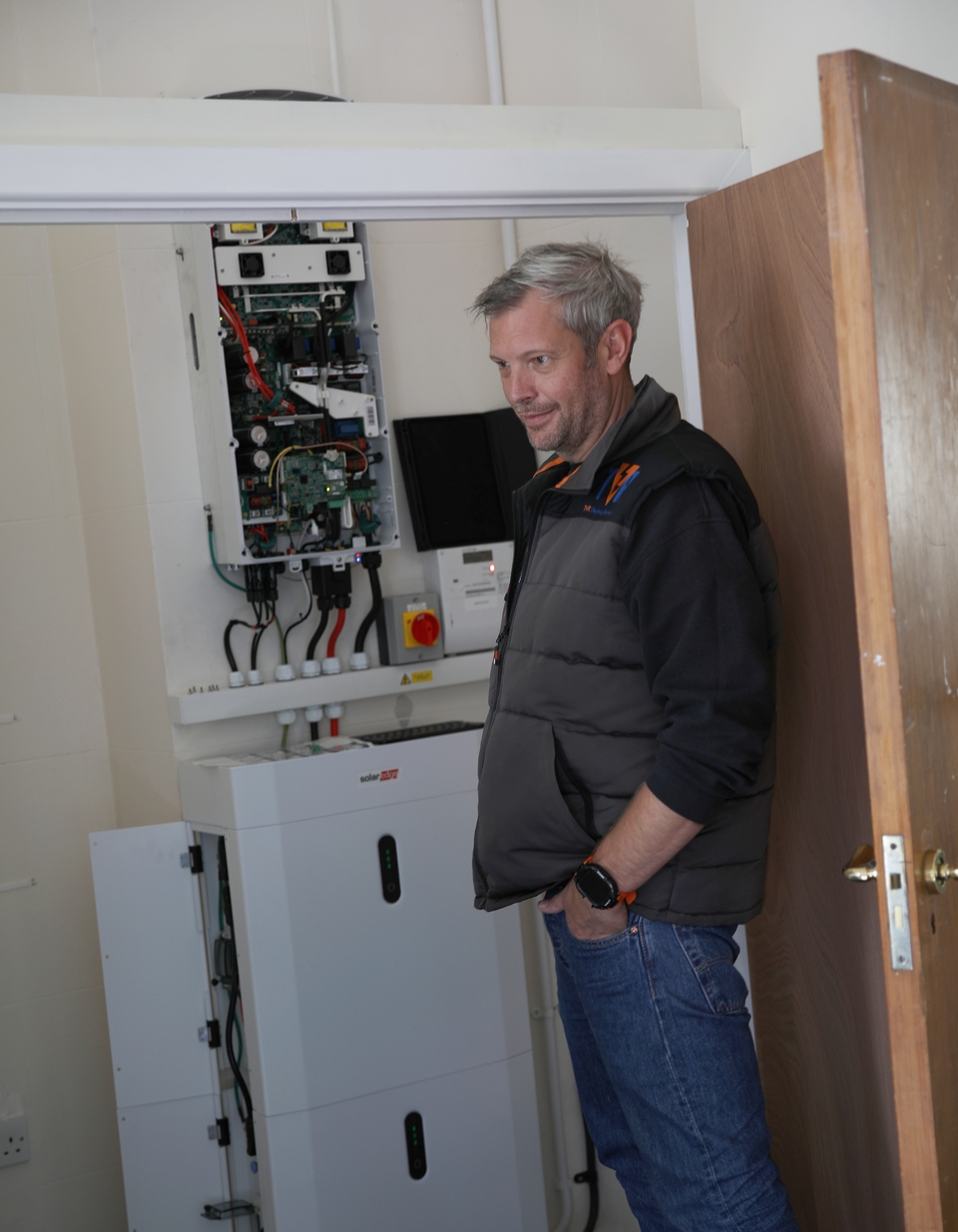-
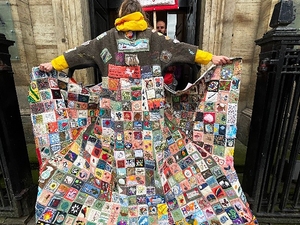
3 February 2026
Special coat visits cathedral and island
An unusual visitor is coming to our cathedral and also travelling around the Isle of ... read more
-
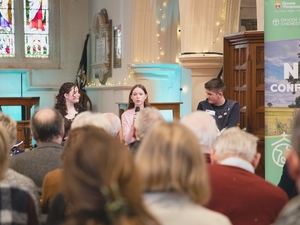
22 January 2026
Parishes pledge deeper collaboration towards creation care and decarbonisation
Parishes from the Dioceses of Guildford, Portsmouth, Chichester and Winchester gathered for a joint conference ... read more
-
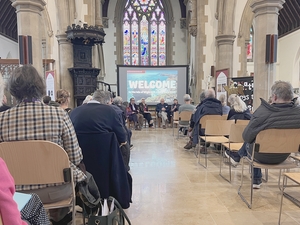
22 October 2025
Young people give rallying call for greater care for creation
Students from Christ the King College joined other speakers to share at the first Net ... read more
Solar panels installed at Southsea church
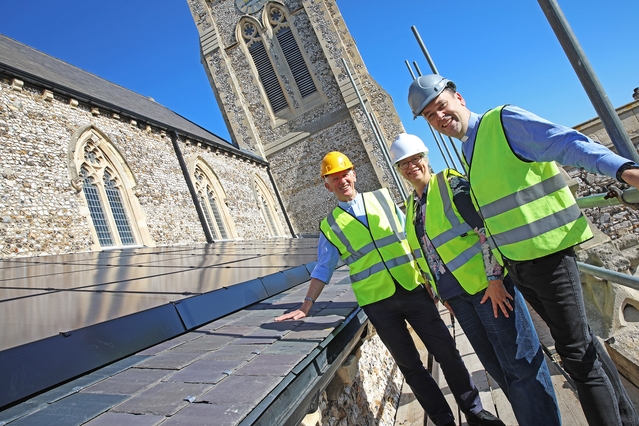
MISSION-MINDED worshippers from Southsea celebrated the installation of solar panels on their roof of their church building.
The 36 solar panels on the roof of St Jude’s Church, Southsea, will help the building towards being carbon net zero – and save money on energy costs. They are on the south-facing lower roof, above Kent Road, soaking up sunlight throughout the year in order to generate power.
The panels will ultimately produce 12,500kWh each year, preventing three tons of CO2 entering the atmosphere annually. It should also save more than £120,000 of energy costs for the church over the next 20 years.
The vicar, the Rev Adam Tams, donned a hard hat and hi-vis jacket to clamber onto the roof alongside former associate vicar the Rev Neil Smart, and Eco-church champion Claire Beadnell, to give thanks for the panels and pray for those who will benefit from them.
The Rev Adam Tams, vicar of St Jude’s, said: “In 1898, St Jude’s was one of the first public buildings in our city – and the first church in the country – to install electricity.
“In our generation we want to again be leaders in adopting technology that will show our commitment to the long-term future of our beautiful building. We were the first church in the city to get permission from Historic England for solar panels to be installed, in view of a public highway.”
And the Rev Neil Smart, who led the church’s Eco Church team before switching jobs earlier this year, said: “It’s so good for us at St Jude’s because it is future-proofing the building, making sure our energy costs are reduced – these panels will save us at least £300 a month in energy bills – and it’s great for the environment.
“Part of the church’s mission is to steward God’s great and awesome creation, and these panels show that the Church is playing its part in making that happen, as the Church of England works towards being net zero carbon by 2030. These panels are just one more step along that road. To see them finally here is such a joy.”
The Eco Church team at St Jude’s deliberately chose Meyer-Burger low-embedded-carbon solar panels, made in a factory where all power is from sustainable sources. The silicon is from Norway, where it’s melted and processed using hydro-electricity. The company also has a 100 per cent transparent supply chain and stringently avoid parts made in places where there may be forced labour.
They consulted with all the relevant planning bodies, including Historic England, the Victorian Society, the Portsmouth History Society, Portsmouth City Council’s planning department, and our diocese’s Diocesan Advisory Committee for the Care of Churches.
Generous worshippers from the church and the local community contributed £54,000 towards the solar panels project, and the remainder came from grant-giving bodies, including the Archbishops’ Council of the Church of England and the Benefact Trust.
The panels were fitted over around 10 days by a team from TVR Electrical, based in Emsworth. They are just one of a few approved installers of Meyer-Burger panels in UK. The church is now redesigning the thermal comfort of the building, using sustainable technologies, which will include the removal of the gas boilers.
The project will now be used to demonstrate to other churches what it is possible. St Jude’s is one of only three demonstrator churches in our diocese, and aims to be net zero carbon by 2027.
The church has also installed a small battery, so they have a grid-back-up system. This will allow staff and the local community to still use the power generated by the panels, in the event of an extended blackout.
To hear more about the project, you are invited to a talk this Saturday (October 11th) from 2:15pm in St Jude’s Church. Worshippers will explain how they achieved the supply and installation of ethical solar panels on a grade II listed church in an urban conservation area.
